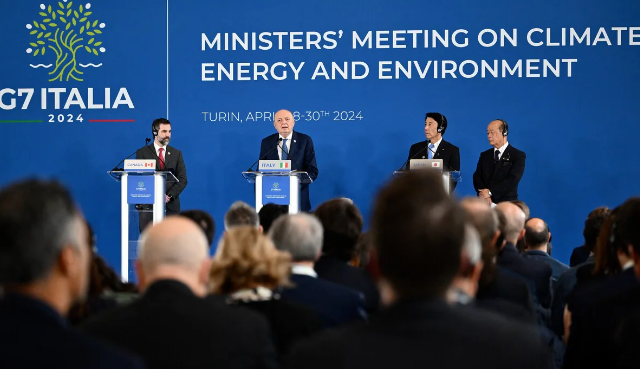G7 Ministers Discuss Phasing Out Coal at Turin Meeting (GS Paper 3, Environment)

Context:
- G7 energy ministers convened on April 29 in Turin to deliberate on the urgent need to phase out coal-fired power plants.
- Against the backdrop of the UN's stern warning on the inadequacy of climate action, the discussions aimed to establish a collective commitment towards reducing reliance on fossil fuels.
Highlights of the Recent G7 Meeting:
- The meeting, hosted in Turin, brought together energy and ecological transition ministers from the G7 nations for a two-day engagement.
- Deliberations centered on the shared goal of shutting down coal-fired power plants and transitioning towards renewable energy sources.
- Topics under discussion included renewables, energy efficiency, phasing out fossil fuels, and research into advanced energy technologies.
- This gathering marked the first significant political session since the global commitment made at COP28 to shift away from coal, oil, and gas.
Outcome of the Meeting:
- G7 ministers neared agreement on committing to phase out coal-fired power plants by the first half of the 2030s.
- The latest draft released after the meeting pledges to eliminate unabated coal power generation within the specified timeframe, aligning with efforts to limit global temperature rise to 1.5°C.
Significance:
- A fixed timeline for phasing out coal would represent a crucial milestone in the global transition towards sustainable energy.
- Italy, holding the G7 presidency, aims for Turin to serve as a bridge between previous climate talks and the upcoming COP29 in Azerbaijan.
Criticisms and Challenges:
- Despite these commitments, a recent report indicates that the G7 is falling short of its climate targets.
- Criticism is directed towards the group's continued dependence on fossil fuels and insufficient climate finance for developing nations.
- Protests in Turin underscore public demands for concrete actions and accountability from G7 leaders.
Way Ahead for G7 Countries:
- Urgent action is needed to address the escalating climate crisis, particularly in vulnerable regions.
- Innovative financing models and increased climate finance for developing nations are essential.
- G7 nations must leverage their political influence, resources, and technological capabilities to expedite the transition away from fossil fuels.


